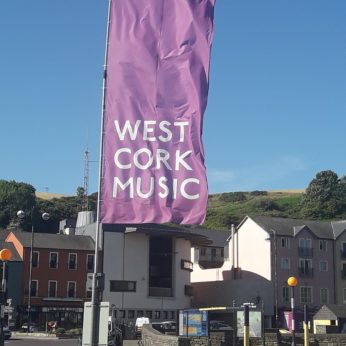Composer: Thomas Tallis (b. 1505 - d. 1585)
Performance date: 30/06/2018
Venue: St. Brendan’s Church
Composition Year: 1505-1585
Duration: 00:08:00
Recording Engineer: Ciaran Cullen, RTÉ
Instrumentation Category:Brass Quartet
Instrumentation Other: tpt, tpt, frhn, tbn
Artists:
London Chamber Brass Seb Philpott [trumpet], Cai Isfryn [trumpet], Oli Hickie [French horn], Barnaby Philpott [trombone]) -
[brass ensemble]

3. COFFEE CONCERT – ST BRENDAN’S CHURCH 11.00
London Chamber Brass
Seb Philpott, Cai Isfryn [trumpets]
Oli Hickie [French horn]
Barnaby Philpott [trombone]
Richard Evans [tuba]
Thomas Tallis [1505-1585], arranged Peter Maxwell-Davies [1934-2016]
Four Voluntaries [arr.1982]
1. Veni Redemtpor Gentium
2. Ex More Docti Mistico
3. Ecce Tempus
4. Presto Molto
Tallis is dead, and Music dies. When Thomas Tallis was buried in 1585, William Byrd, his most celebrated pupil and close friend, composed a lament ending with these words. One of the most important English composers of sacred music, Tallis was a master of harmony and counterpoint and was held in great regard by the ever-changing monarchy of the time. Queen Elizabeth I granted him, together with Byrd, a monopoly for writing polyphonic music, as well as exclusive rights to print sheet music in any language. He was writing in a period during which the idea of harmony was still developing and its rules were yet to be more formally agreed in the Baroque period. His bold dissonances, a characteristic of this period of English music, still sound jarring centuries later.
The Four Voluntaries originate from The Mulliner Book (1545-1570), a compilation of keyboard works from various composers. In 1982, Sir Peter Maxwell-Davies, himself a giant of British music, arranged four of these into a work for brass quintet. The form is based on plainsong, with the trombone beginning each movement, before being elaborated on by the other instruments.
Seb Philpott
Copyright © 2025 West Cork Music. All rights reserved.
Designed and developed by Matrix Internet